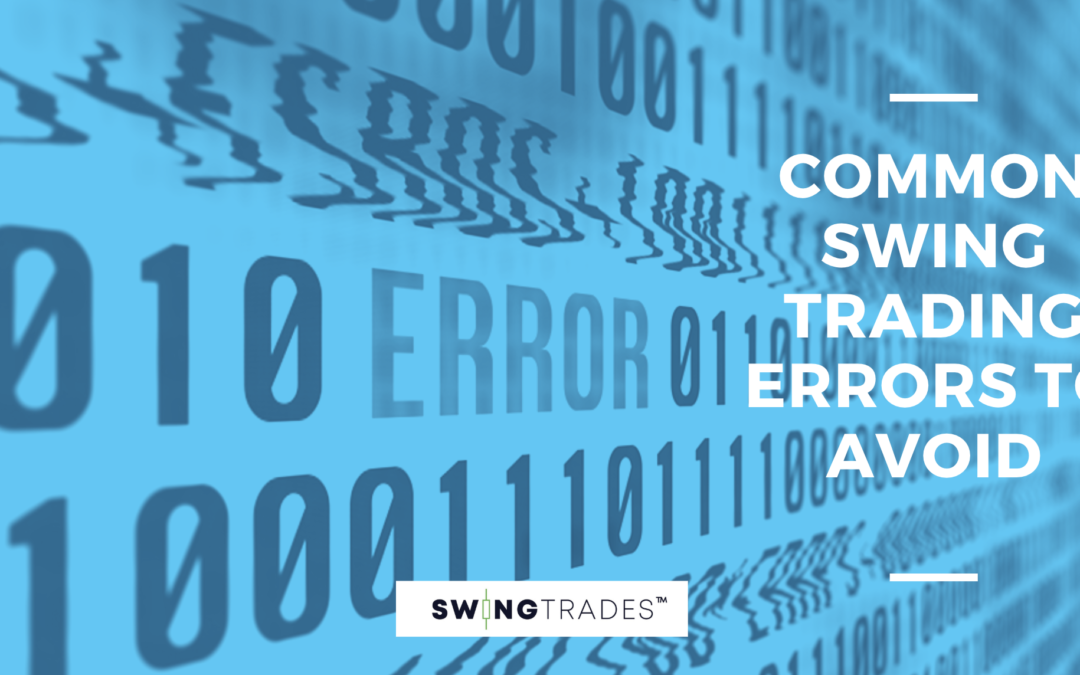To a certain degree, every trader will experience some loss and misfortune throughout the course of their career like swing trading errors . It’s inherent to the process of trading; there are simply too many factors at play in the market to get it right every time.
Swing Trading Errors to Avoid
That having been said, there are certain mistakes that traders seem to make over and over that could be easily avoided. Most traders have made one or more of these mistakes … have you?
By educating yourself on common swing trading errors, you’ll be better able to avoid them. Over time, this could potentially help you improve your trading.
Here’s a list of some of the most common trading errors to avoid. Print it out and keep it near your trading monitor so you don’t forget them!
Chasing stocks
Don’t be a follower. If you’ve missed your planned entry on a trade, don’t try to jump anyway. While it might feel like the end of the world for about 10 minutes, there will be other stocks to play.
Don’t give in to the anxiety of FOMO. Often enough, a stock will pull back after it pops, and you could end up getting your entry after all. If that doesn’t happen, just wait for the next one.
You miss your entry, there will be other stocks to play. Fight the anxiety and the FOMO. Many times a stock pulls back from the initial pop and you will get your entry after all. If you miss out, wait for the next one. Bide your time by researching and creating super strong trading plans so that you’ll be ready to pounce on the next opportunity.
An all-or-nothing mentality
Extremes can be dangerous. That’s true in all areas of life, but particularly when we’re talking about risking your capital in a trade. Plenty of traders have the “go big or go home” mentality…and plenty of traders end up losing most of their account in a single trade with this mentality.
Never invest more than you’re willing to lose if a trade turns sour. Things can happen quickly in the stock market, and you never want to be put in a position where you could lose everything.
Not minimizing losses/maximizing gains
While it’s great to hope for the best from a trade, it’s also important to be prepared for the worst.
Many traders fail to think about the potential for loss, and aren’t prepared when things don’t go their way in a trade. Their judgment gets cloudy, and that’s where they make decisions based on emotions rather than calculations.
To minimize your losses, always use stops–whether mental or real. I enter trades with a defined downside tolerance, and if the trade goes against me, I will sell. I try to learn from the experience and think about what I could have done differently … but then I move on.
Maximizing gains is also important. Set the point for your desired profits. Sometimes, when a stock reaches the low end of my profit goals, I will start to take off 25-50%. If I think there is more of a move, I will let the rest ride accordingly. This way, I’m protected, but have the ability to see if the stock might continue higher. It takes a lot of stress out of the process!
Trading bored
This is such a common problem, yet so easily avoided! Trading because you think you should, or you’re just bored, is a terrible habit. It’s a gambling addict type of mentality.
Some days, there will be multiple trading opportunities. Other times, there won’t be a great play for a week. Wait until the right opportunities come your way.
If a trade doesn’t fit your criteria, don’t force it to happen just because you think you should be doing something. Instead, lose that time to study the market and do some weeding of your watchlist so that you can make better decisions when the opportunities do arise.
Letting emotions get the best of you
Trading is part intellect and part emotion. Try to keep these things in balance.
Greed and fear in particular are your biggest enemies as a trader. These emotions can make you do things like chase stocks, hold on to losing stocks, and make dumb decisions in the heat of the moment. While you’ll never be totally able to let go of these emotions, do your best to combat them by always having a strong trading plan in place … and sticking to it!
SwingTrades With Paul Scolardi
I’m Paul Scolardi, a swing trader and the lead teacher at SwingTrades.
As a swing trader, I try to figure out what will trend tomorrow in the stock market. So instead of looking at today’s hot stocks, I’m trying to figure out the next big thing.
Throughout the course of my career, I’ve found potential future hot sectors by looking for and finding earnings winners, sector leaders, and hot IPOs.
Curious about swing trading? Join my SwingTrades program.
In the program, my goal is to I help my students become self-sufficient traders. I do this by teaching them what I’ve learned over the years about how to identify potential momentum stocks. I’ve taught over 1,400 students from 50 different countries … could you be next?
Remember: Trading requires lots of hard work and dedication. No matter how much you study and prepare, there are always factors in the market that you can’t anticipate. Trades are always executed at your own risk.
Work toward becoming an informed and self-sufficient trader with SwingTrades!

